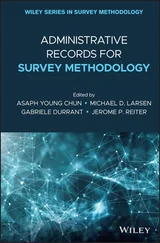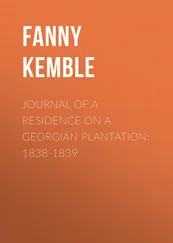Fanny Kemble - Records of a Girlhood
Здесь есть возможность читать онлайн «Fanny Kemble - Records of a Girlhood» — ознакомительный отрывок электронной книги совершенно бесплатно, а после прочтения отрывка купить полную версию. В некоторых случаях можно слушать аудио, скачать через торрент в формате fb2 и присутствует краткое содержание. Жанр: foreign_prose, foreign_antique, на английском языке. Описание произведения, (предисловие) а так же отзывы посетителей доступны на портале библиотеки ЛибКат.
- Название:Records of a Girlhood
- Автор:
- Жанр:
- Год:неизвестен
- ISBN:нет данных
- Рейтинг книги:4 / 5. Голосов: 1
-
Избранное:Добавить в избранное
- Отзывы:
-
Ваша оценка:
- 80
- 1
- 2
- 3
- 4
- 5
Records of a Girlhood: краткое содержание, описание и аннотация
Предлагаем к чтению аннотацию, описание, краткое содержание или предисловие (зависит от того, что написал сам автор книги «Records of a Girlhood»). Если вы не нашли необходимую информацию о книге — напишите в комментариях, мы постараемся отыскать её.
Records of a Girlhood — читать онлайн ознакомительный отрывок
Ниже представлен текст книги, разбитый по страницам. Система сохранения места последней прочитанной страницы, позволяет с удобством читать онлайн бесплатно книгу «Records of a Girlhood», без необходимости каждый раз заново искать на чём Вы остановились. Поставьте закладку, и сможете в любой момент перейти на страницу, на которой закончили чтение.
Интервал:
Закладка:
The experiments tried upon the minds and souls of children by those who undertake to train them, are certainly among the most mysterious of Heaven-permitted evils. The coarse and cruel handling of these wonderfully complex and delicate machines by ignorant servants, ignorant teachers, and ignorant parents, fills one with pity and with amazement that the results of such processes should not be even more disastrous than they are.
In the nature of many children exists a capacity of terror equalled in its intensity only by the reticence which conceals it. The fear of ridicule is strong in these sensitive small souls, but even that is inadequate to account for the silent agony with which they hug the secret of their fear. Nursery and schoolroom authorities, fonder of power than of principle, find their account in both these tendencies, and it is marvellous to what a point tyranny may be exercised by means of their double influence over children, the sufferers never having recourse to the higher parental authority by which they would be delivered from the nightmare of silent terror imposed upon them.
The objects that excite the fears of children are often as curious and unaccountable as their secret intensity. A child four years of age, who was accustomed to be put to bed in a dressing-room opening into her mother's room, and near her nursery, and was left to go to sleep alone, from a desire that she should not be watched and lighted to sleep (or in fact kept awake, after a very common nursery practice), endured this discipline without remonstrance, and only years afterwards informed her mother that she never was so left in her little bed, alone in the darkness, without a full conviction that a large black dog was lying under it, which terrible imagination she never so much as hinted at, or besought for light or companionship to dispel. Miss Martineau told me once, that a special object of horror to her, when she was a child, were the colors of the prism, a thing in itself so beautiful, that it is difficult to conceive how any imagination could be painfully impressed by it; but her terror of these magical colors was such, that she used to rush past the room, even when the door was closed, where she had seen them reflected from the chandelier, by the sunlight, on the wall.
The most singular instance I ever knew, however, of unaccountable terror produced in a child's mind by the pure action of its imagination, was that of a little boy who overheard a conversation between his mother and a friend upon the subject of the purchase of some stuff, which she had not bought, "because," said she, "it was ell wide." The words "ell wide," perfectly incomprehensible to the child, seized upon his fancy, and produced some image of terror by which for a long time his poor little mind was haunted. Certainly this is a powerful instance, among innumerable and striking ones, of the fact that the fears of children are by no means the result of the objects of alarm suggested to them by the ghost-stories, bogeys, etc., of foolish servants and companions; they quite as often select or create their terrors for themselves, from sources so inconceivably strange, that all precaution proves ineffectual to protect them from this innate tendency of the imaginative faculty. This "ell wide" horror is like something in a German story. The strange aversion, coupled with a sort of mysterious terror, for beautiful and agreeable or even quite commonplace objects, is one of the secrets of the profound impression which the German writers of fiction produce. It belongs peculiarly to their national genius, some of whose most striking and thrilling conceptions are pervaded with this peculiar form of the sentiment of fear. Hoffman and Tieck are especially powerful in their use of it, and contrive to give a character of vague mystery to simple details of prosaic events and objects, to be found in no other works of fiction. The terrible conception of the Doppelgänger , which exists in a modified form as the wraith of Scottish legendary superstition, is rendered infinitely more appalling by being taken out of its misty highland half-light of visionary indefiniteness, and produced in frock-coat and trousers, in all the shocking distinctness of commonplace, everyday, contemporary life. The Germans are the only people whose imaginative faculty can cope with the homeliest forms of reality, and infuse into them vagueness , that element of terror most alien from familiar things. That they may be tragic enough we know, but that they have in them a mysterious element of terror of quite indefinite depth, German writers alone know how to make us feel.
I do not think that in my own instance the natural cowardice with which I was femininely endowed was unusually or unduly cultivated in childhood; but with a highly susceptible and excitable nervous temperament and ill-regulated imagination, I have suffered from every conceivable form of terror; and though, for some inexplicable reason, I have always had the reputation of being fearless, have really, all my life, been extremely deficient in courage.
Very impetuous, and liable to be carried away by any strong emotion, my entire want of self-control and prudence, I suppose, conveyed the impression that I was equally without fear; but the truth is that, as a wise friend once said to me, I have always been "as rash and as cowardly as a child;" and none of my sex ever had a better right to apply to herself Shakespeare's line—
"A woman, naturally born to fears."
The only agreeable impression I retain of my school-days at Boulogne is that of the long half-holiday walks we were allowed to indulge in. Not the two-and-two, dull, dreary, daily procession round the ramparts, but the disbanded freedom of the sunny afternoon, spent in gathering wild-flowers along the pretty, secluded valley of the Liane, through which no iron road then bore its thundering freight. Or, better still, clambering, straying, playing hide-and-seek, or sitting telling and hearing fairy tales among the great carved blocks of stone, which lay, in ignominious purposelessness, around the site on the high, grassy cliff where Napoleon the First—the Only—had decreed that his triumphal pillar should point its finger of scorn at our conquered, "pale-faced shores." Best of all, however, was the distant wandering, far out along the sandy dunes, to what used to be called "La Gárenne;" I suppose because of the wild rabbits that haunted it, who—hunted and rummaged from their burrows in the hillocks of coarse grass by a pitiless pack of school-girls—must surely have wondered after our departure, when they came together stealthily, with twitching noses, ears, and tails, what manner of fiendish visitation had suddenly come and gone, scaring their peaceful settlement on the silent, solitary sea-shore.
Before I left Boulogne, the yearly solemnity of the distribution of prizes took place. This was, at Madame Faudier's, as at all French schools of that day, a most exciting event. Special examinations preceded it, for which the pupils prepared themselves with diligent emulation. The prefect, the sub-prefect, the mayor, the bishop, all the principal civil and religious authorities of the place, were invited to honor the ceremony with their presence. The courtyard of the house was partly inclosed, and covered over with scaffoldings, awnings, and draperies, under which a stage was erected, and this, together with the steps that led to it, was carpeted with crimson, and adorned with a profusion of flowers. One of the dignified personages, seated around a table on which the books designed for prizes were exhibited, pronounced a discourse commendatory of past efforts and hortatory to future ones, and the pupils, all en grande toilette , and seated on benches facing the stage, were summoned through the rows of admiring parents, friends, acquaintances, and other invited guests, to receive the prizes awarded for excellence in the various branches of our small curriculum. I was the youngest girl in the school, but I was a quick, clever child, and a lady, a friend of my family, who was present, told me many years after, how well she remembered the frequent summons to the dais received by a small, black-eyed damsel, the cadette of the establishment. I have considerable doubt that any good purpose could be answered by this public appeal to the emulation of a parcel of school-girls; but I have no doubt at all that abundant seeds of vanity, self-love, and love of display, were sown by it, which bore their bad harvest many a long year after.
Читать дальшеИнтервал:
Закладка:
Похожие книги на «Records of a Girlhood»
Представляем Вашему вниманию похожие книги на «Records of a Girlhood» списком для выбора. Мы отобрали схожую по названию и смыслу литературу в надежде предоставить читателям больше вариантов отыскать новые, интересные, ещё непрочитанные произведения.
Обсуждение, отзывы о книге «Records of a Girlhood» и просто собственные мнения читателей. Оставьте ваши комментарии, напишите, что Вы думаете о произведении, его смысле или главных героях. Укажите что конкретно понравилось, а что нет, и почему Вы так считаете.












